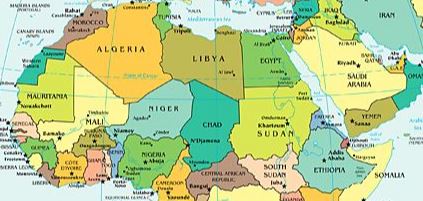
War in Mali: The British Are Coming
War in Mali: The British Are Coming
The United Kingdom is sending 250 Royal Army troops to West Africa to assist in the conflict against Jihadist forces, as announced by the British government in late July of 2020. This is a significant increase in British involvement in the current war in that part of Africa, which is being waged to protect local governments and people’s from Jihadist Islamic militants.
These British troops will join United Nations forces that already number some 13,000 troops from France, China, and many African nations. The British troops will be living, working, and fighting in the deserts of Mali against these Jihadist forces that have been active there since 2012.
France already has about 5,100 troops in Mali with air support and armor, and they have been engaged with the Jihadist forces since the French intervention in 2013, which began when it appeared that Mali was about to be overrun by the Jihadists. The origins of that conflict in Mali go back quite a ways. It initially began with a Tuareg Rebellion in Northern Mali, which was only the latest of a long series of these rebellions. The Tuareg are a desert-based ethnic group that has always had difficulty with central authority, especially from the more Francophone and urbanized areas of Southern Mali where most political power in that country is held.
Following the overthrow of Libyan strongman Muammar Qaddafi in 2011, a large contingent of Tuareg fighters who had acted as mercenaries in his army, left Libya with their heavy weapons and vehicles, traveled home to Mali, where there they joined with local Jihadist groups including al-Qaeda-in-the Maghreb, which had already been active in the region.
When talking about the jihadist presence in West Africa, we need to understand that it is not limited to just one nation, in this case Mali. With the borders in that area being very fluid, and partly because it’s such an arid and empty desert area, the Jihadist forces travel between the different countries quite easily. For example, al-Qaeda-in-the Maghreb began as an Algerian resistance group during the Algerian Civil War between the military-led government and Jihadist rebels, so as we talk about the war in Mali we are also talking about this these groups also battling in Burkina Faso, Algeria, and Chad. All of these Jihadist forces are very mobile and they have also make connections with Boko Haram in northern Nigeria, which is also associated with international Islamic Jihadist groups.
Western powers such as United States, France, and Great Britain, have contributed to the United Nations peacekeeping forces in the area and, in case of France, have contributed large numbers of troops. When France intervened in the Mali War in 2013 they were supported logistically by the United States, who flew in French troops and equipment for them. The British also supported them, and in advance of these 250 British troops going into Mali the summer of 2020, small groups of SAS, or Special Air Service, troops which are the British equivalent of Special Forces, are already on the ground in Mali doing reconnaissance and setting things up for this larger contingent of British forces.
So when we look at the British and French involvement in this part of Africa we also need to mention that the United States has troops in many of these countries, conducting training of local forces and often going out on patrol with the local troops. In 2017 Islamic State in the Greater Sahara militants ambushed and killed four American soldiers in Niger. That attack brought to the public mind in the United States that American forces are involved in these wars and that they are in danger.
This is part of the larger International conflict against the Islamist Jihadist forces that include Al-Qaeda, the Islamic State, which is also called ISIS, and other smaller groups that are not well-publicized, but are involved in various insurgencies throughout Africa. In the Horn of Africa we have al-Shabaab, which is a Somali rebel group aligned with Al-Qaeda. We already mentioned Boko Haram in Nigeria and there is also an Islamist rebellion in Northern Mozambique which is coincidentally, the area of that country that has large petroleum and natural gas reserves.
More than likely with the British troops being more heavily involved in Mali, the English-speaking world will probably hear more of this almost-hidden war in the deserts of North West Africa. The international aspect to the war against Jihadist groups is largely unknown in the West, at least in the English-speaking portions of the West, meaning the United States. Most American focus, where there is any on U.S. military operations overseas, is on operations in Iraq, Afghanistan, and Syria with occasional strikes in Libya, Yemen or Somalia.
As events warrant Historyguy.com will update events and post them to the website and also to our podcast. Listen to our War and Conflicts News Podcast at:
